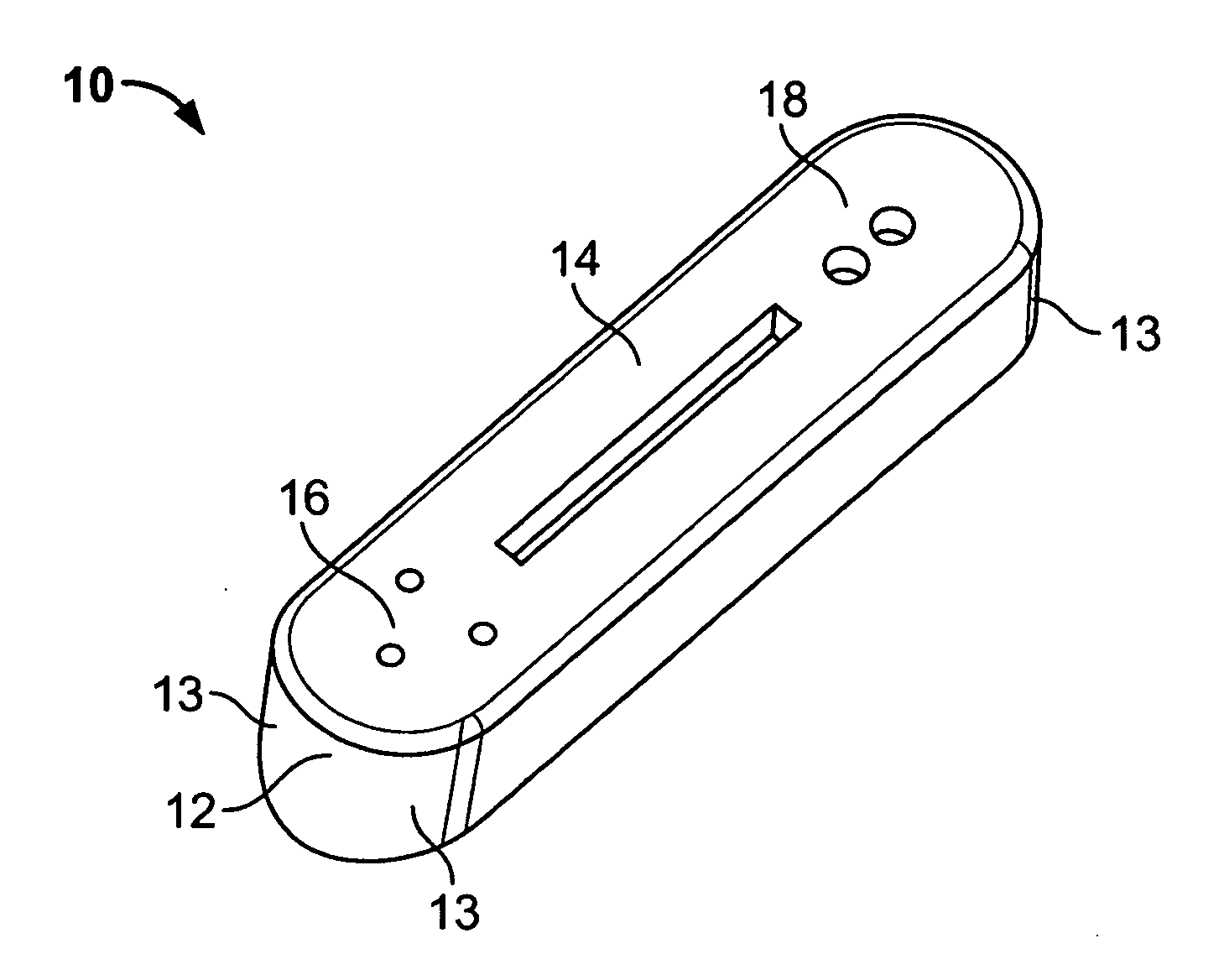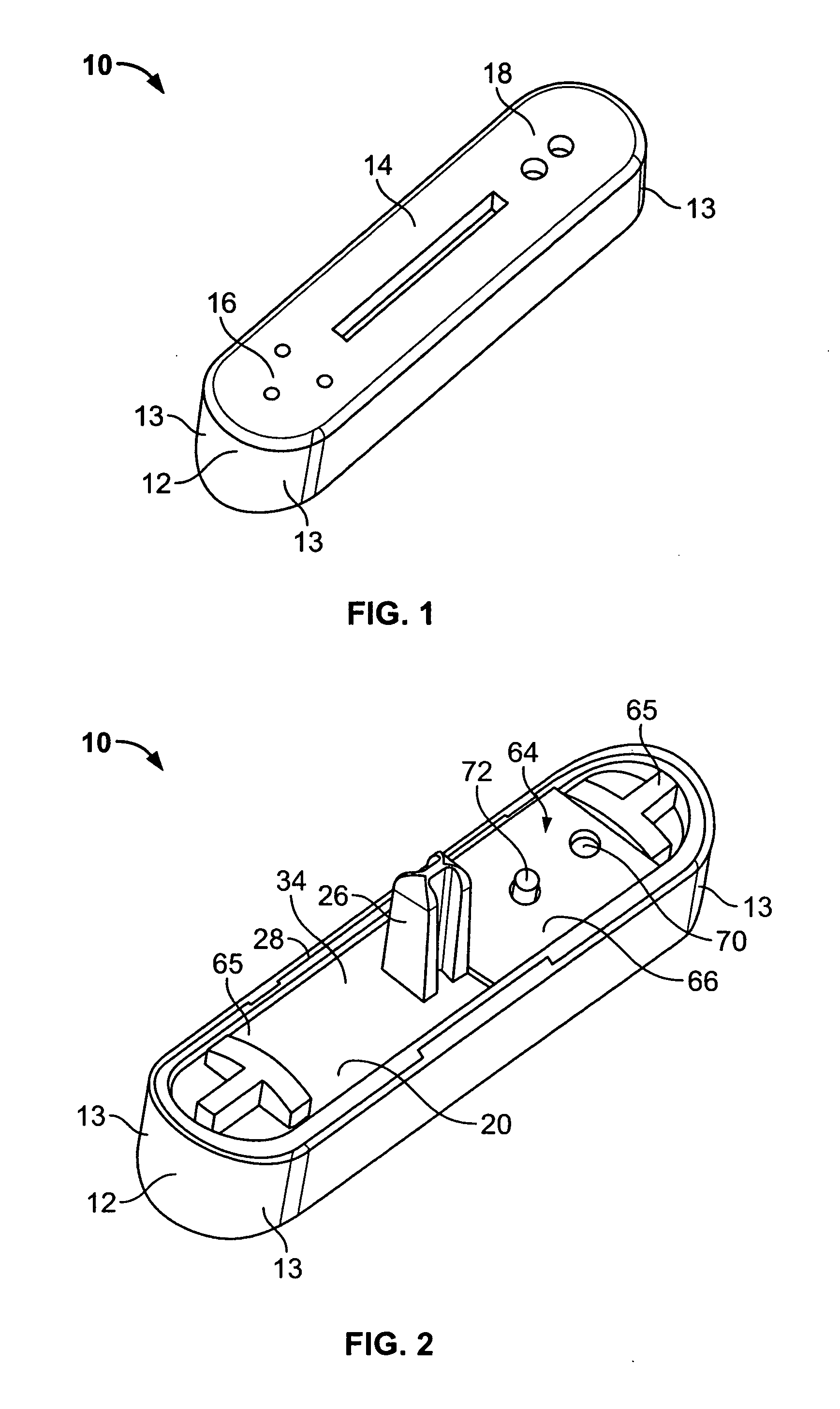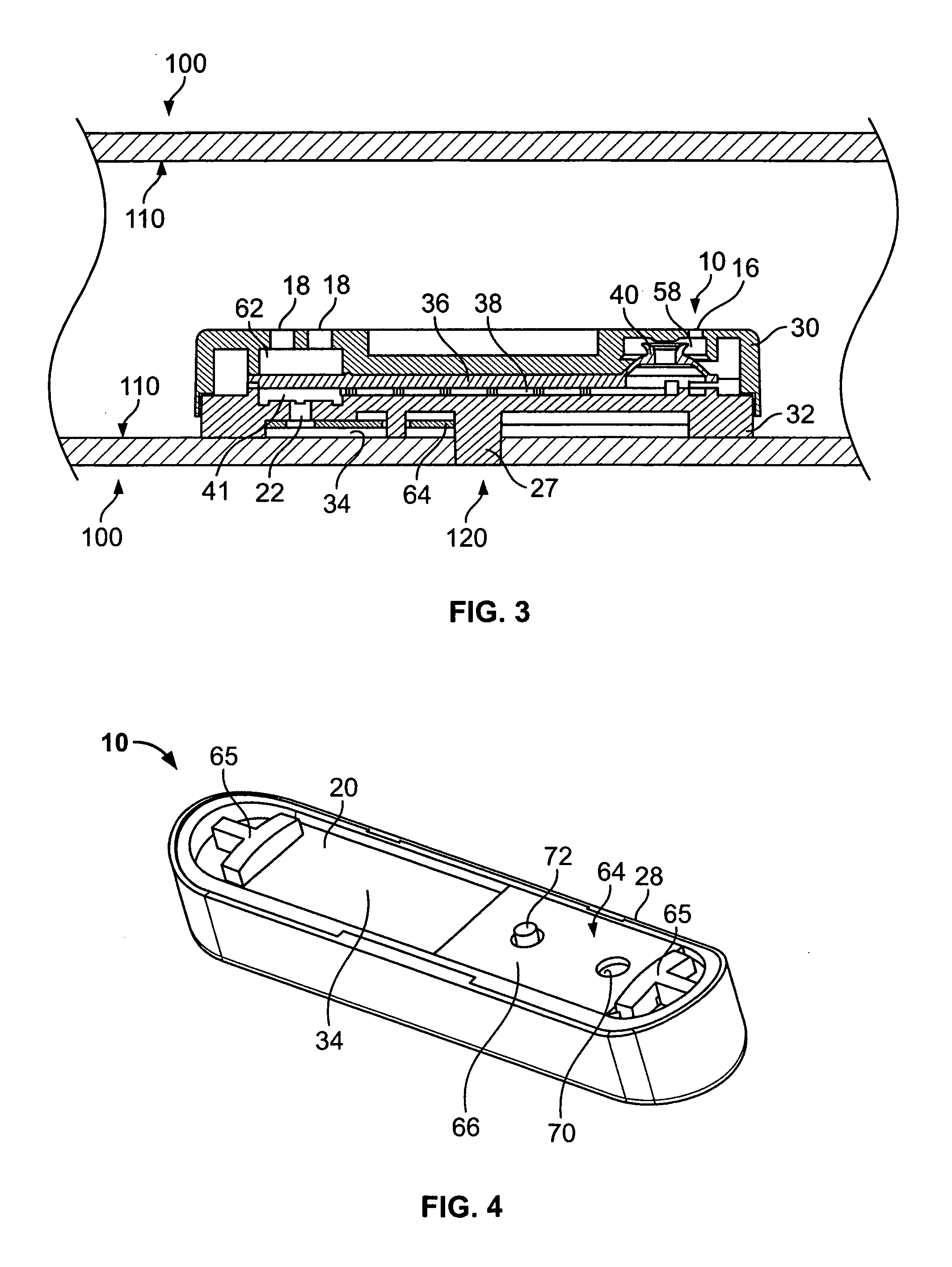Drip emitter
a technology of drip emitter and emitter body, which is applied in the direction of mechanical equipment, process and machine control, instruments, etc., can solve the problems of not easy to vandalize the subsurface emitter, the emitter is located above ground, and may be undesirable at parks and school grounds
- Summary
- Abstract
- Description
- Claims
- Application Information
AI Technical Summary
Problems solved by technology
Method used
Image
Examples
Embodiment Construction
[0029] With respect to FIGS. 1-5, a drip irrigation emitter 10 is provided for delivering irrigation water from a water supply conduit, such as an irrigation supply tube, at a low volume, substantially trickle, or drip flow rate. The emitter 10 operates generally through the use of a tortuous path flow channel 38 that causes a pressure reduction between the irrigation tube and an emitter outlet 22. The emitter 10 includes a first inlet 16 for tapping a portion of the water flow from the irrigation tube, and, when the water pressure is above a predetermined minimum level, directing the flow to and through the tortuous path flow channel 38 for subsequent discharge to a desired location. In the preferred embodiment, the emitter 10 also includes a second inlet 18 for maintaining relatively constant output water flow by compensating for fluctuations in water pressure in the irrigation tube.
[0030] The emitter 10 comprises a compact housing 12 made of a sturdy and non-corrosive material. ...
PUM
| Property | Measurement | Unit |
|---|---|---|
| Pressure | aaaaa | aaaaa |
| Flow rate | aaaaa | aaaaa |
| Area | aaaaa | aaaaa |
Abstract
Description
Claims
Application Information
 Login to View More
Login to View More - R&D
- Intellectual Property
- Life Sciences
- Materials
- Tech Scout
- Unparalleled Data Quality
- Higher Quality Content
- 60% Fewer Hallucinations
Browse by: Latest US Patents, China's latest patents, Technical Efficacy Thesaurus, Application Domain, Technology Topic, Popular Technical Reports.
© 2025 PatSnap. All rights reserved.Legal|Privacy policy|Modern Slavery Act Transparency Statement|Sitemap|About US| Contact US: help@patsnap.com



